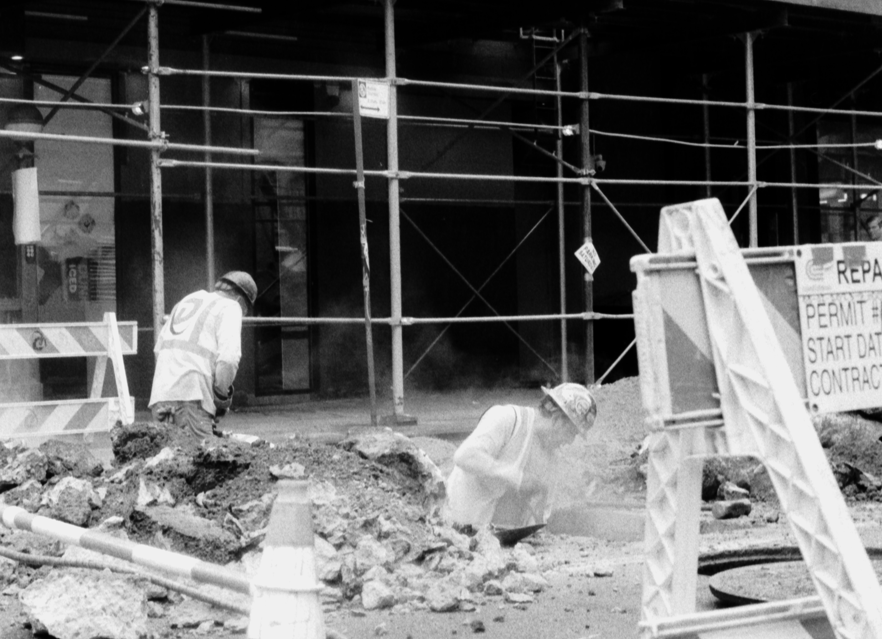The contents of this blog post have been transcribed from our YouTube video, “New York Roadway Excavation Quality Assurance Act Overview”
A New York Labor Law published in August of 2023 has triggered prevailing wage requirements on certain roadway construction work by utility company contractors. Here’s an overview of what this act is and what requirements are posed for you.
Table of Contents
- Which Projects are Applicable?
- Prevailing Wage Requirements
- Recordkeeping Requirements
- Enforcement and Penalties
- Conclusion
Which Projects are Applicable?
The New York Roadway Excavation Quality Assurance Act came into effect on September 15th, 2023. The rules under this law are enforced on “all contracts for construction solicited on or after the effective date.” A contract is “solicited” when bidders on a project are requested to submit their offers. If there was no solicitation or contract, the act is enforced on work performed under a permit issued on or after the effective date. If a permit was required for the job but not obtained, the work would still be covered.
The type of work covered under this law is defined as a “covered excavation project.” This includes “construction work issued to a contractor or subcontractor of a utility company by the state, a county, or a municipality.” The work covered isn’t exclusive to excavation, and the law generally covers “projects requiring a permit to excavate, open, or otherwise use a street to perform utility work are covered by this law.” This can include the opening, patching, and closing of the street as well.
Covered types of utility work include “Electric, gas, water, steam, sewer, fuel, geothermal and telephone/telegraph.
Prevailing Wage Requirements
With the effective date and types of covered work in mind, the payment of prevailing wage rates would follow. The payment of prevailing wages is applicable to all contractors and subcontractors and would go to the laborers, workers, or mechanics performing work for the utility company, For an extensive overview of what prevailing wages are, you can visit this video on our YouTube channel.
Contractors are recommended to contact the nearest Bureau of Public Work district office to gather which prevailing wage rates are applicable to the different types of utility work.
Recordkeeping Requirements
Alongside the payment of prevailing wages, contractors are instructed to maintain records of payment. Per the Quality Assurance Act guidance, “Contractors and subcontractors to a utility are now always required to keep records of the payment of prevailing wages.” Commonly kept records for general prevailing wage documentation includes certified payroll reports, pay stubs/itemized wage statements, and fringe benefit documentation. The overarching best practice is to keep all documents that provide a full picture of the employees’ pay.
Enforcement and Penalties
Regulations of The Quality Assurance Act and penalties for violation are further defined through the following Labor Laws:
Labor Law 220, which defines the 8 hour workday,
Labor Law 220(a), which requires contractors to maintain statements showing the amounts due for wages toward employees and the payment of prevailing wages.
Labor Law 220(b), which defines withheld payments on laborers’ wages,
Labor Law 223, which defines the contractor’s responsibility if found non-compliant with the proper payment of wages
Labor Law 224-b, which defines the stop-work order if a contractor is found to be non-compliant,
And Labor Law 227, which penalizes contractors who have failed to pay prevailing wage rates. This can result in being guilty of a misdemeanor and, in certain cases, a fine of $500 – even imprisonment.
Conclusion
The payment of prevailing wages under the New York Roadway Quality Assurance Act is important to maintain to keep your business above penalties and remain in compliance with the prevailing wage laws.

